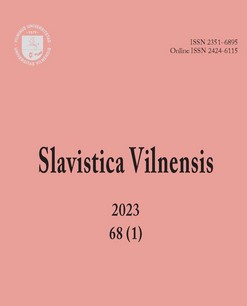Świadomość językowa mieszkańców Górnego Śląska przesiedlonych z dawnych województw południowowschodnich Drugiej Rzeczypospolitej
Language Awareness of Upper Silesia Inhabitants Displaced from the Former Southeastern Provinces of the Second Republic of Poland
Author(s): Mirosława Sagan-BielawaSubject(s): Sociolinguistics, Western Slavic Languages, Identity of Collectives
Published by: Vilniaus Universiteto Leidykla
Keywords: sociolinguistics; language attitudes; Polish language; Polish of southeastern borderland; Upper Silesia;
Summary/Abstract: The paper considers attitudes towards varieties of Polish on the example of people born in the former southeastern provinces of the Second Republic of Poland and forced to emigrate after the Second World War to Upper Silesia. These people are a language community that represents the dual identity of culture and language. Their first identity was formed on the Polish-Ukrainian borderland during the childhood and adolescence period. However, these people are part of the Upper Silesian speech community. They are strongly professionally and privately bound to the region. The paper is based on interviews with 33 people conducted at the turn of the 20th and 21st centuries. All of interviewers had secondary or higher education. The analysis refers to the opinions of respondents about the role of language in their own lives and in the activities of the displaced persons community. This work examines the social evaluation of variants and feelings that the language invokes, in particular, the Polish spoken in the former southeastern borderland compared to the Silesian dialect. It may be concluded that elements of the pre-war dialect of the city of Lviv constituted for these people an indicator of belonging to the community whereas the Silesian dialect was treated with reserve.
Journal: Slavistica Vilnensis
- Issue Year: 68/2023
- Issue No: 1
- Page Range: 44-58
- Page Count: 15
- Language: Polish

